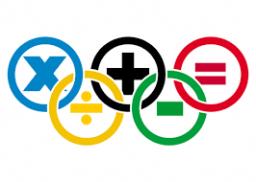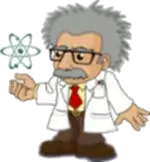Divisible number
Six cards with digits 1, 2, 3, 4, 5, and 6 are on the table. Agnes made a six-digit number from these cards, divisible by six. Then she gradually removed the cards from the right. A five-digit number divisible by five remained on the table when she removed the first card. When she removed the next card, the four-digit number remained divisible by four. She obtained a successive three-digit number divisible by three and a two-digit number divisible by two. What six-digit number could Agnes originally have composed?
Specify all options.
Specify all options.
Final Answer:

You need to know the following knowledge to solve this word math problem:
algebrabasic operations and conceptsnumbersthemes, topicsGrade of the word problem
Related math problems and questions:
- Digit puzzle
 Four different digits were on the four cards, one of which was zero. Vojta composed the largest four-digit number from the cards, and Martin the smallest four-digit number. Adam wrote the difference between Vojtov's and Martin's numbers on the board. Then
Four different digits were on the four cards, one of which was zero. Vojta composed the largest four-digit number from the cards, and Martin the smallest four-digit number. Adam wrote the difference between Vojtov's and Martin's numbers on the board. Then - Card sum puzzle
 On the table lay eight cards with the numbers 2,3,5,7,11,13,17,19. Fero chose three cards. He added the numbers written on them and found that their sum was 1 more than the sum of the numbers on the remaining cards. Which cards could have been left on the
On the table lay eight cards with the numbers 2,3,5,7,11,13,17,19. Fero chose three cards. He added the numbers written on them and found that their sum was 1 more than the sum of the numbers on the remaining cards. Which cards could have been left on the - Three-digit unknown int
 Viera compiled different three-digit numbers from three given digits. When she added up all these numbers, she published 1221. What numbers did Vierka use? Identify five options
Viera compiled different three-digit numbers from three given digits. When she added up all these numbers, she published 1221. What numbers did Vierka use? Identify five options - Air draft
 The numbers 1,2,3,4,5 are written on five tickets on the table. Air draft randomly shuffled the tickets and composed a 5-digit number from them. What is the probability that he passed: and the largest possible number b, the smallest possible number c, a n
The numbers 1,2,3,4,5 are written on five tickets on the table. Air draft randomly shuffled the tickets and composed a 5-digit number from them. What is the probability that he passed: and the largest possible number b, the smallest possible number c, a n - Number difference
 Peter said to Paul: "Write a two-digit natural number with the property that if you subtract from it a two-digit natural number written in reverse, you get the difference 63. Which number could Paul have written?" Specify all options.
Peter said to Paul: "Write a two-digit natural number with the property that if you subtract from it a two-digit natural number written in reverse, you get the difference 63. Which number could Paul have written?" Specify all options. - Five-digit number divisibility
 How many different five-digit numbers with different digits can be made from the digits 0, 2, 4, 6, 7, 8, and 9? How many of them are divisible by 4? How many of them are divisible by 10? How many of them are even?
How many different five-digit numbers with different digits can be made from the digits 0, 2, 4, 6, 7, 8, and 9? How many of them are divisible by 4? How many of them are divisible by 10? How many of them are even? - Permutations
 How many 4-digit numbers can be composed of numbers 1,2,3,4,5,6,7 if: a, the digits must not be repeated in the number b, the number should be divisible by five, and the numbers must not be repeated c, digits can be repeated
How many 4-digit numbers can be composed of numbers 1,2,3,4,5,6,7 if: a, the digits must not be repeated in the number b, the number should be divisible by five, and the numbers must not be repeated c, digits can be repeated
